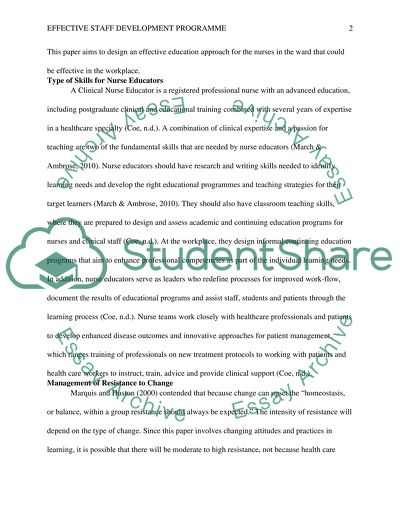Cite this document
(“Effective staff development programme for nurses: Transforming nurses Essay”, n.d.)
Effective staff development programme for nurses: Transforming nurses Essay. Retrieved from https://studentshare.org/nursing/1446326-effective-staff-development-programme-for-nurses-transforming-nurses-into-competent-practitioner
Effective staff development programme for nurses: Transforming nurses Essay. Retrieved from https://studentshare.org/nursing/1446326-effective-staff-development-programme-for-nurses-transforming-nurses-into-competent-practitioner
(Effective Staff Development Programme for Nurses: Transforming Nurses Essay)
Effective Staff Development Programme for Nurses: Transforming Nurses Essay. https://studentshare.org/nursing/1446326-effective-staff-development-programme-for-nurses-transforming-nurses-into-competent-practitioner.
Effective Staff Development Programme for Nurses: Transforming Nurses Essay. https://studentshare.org/nursing/1446326-effective-staff-development-programme-for-nurses-transforming-nurses-into-competent-practitioner.
“Effective Staff Development Programme for Nurses: Transforming Nurses Essay”, n.d. https://studentshare.org/nursing/1446326-effective-staff-development-programme-for-nurses-transforming-nurses-into-competent-practitioner.


